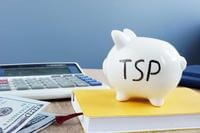Like any good financial writer and blogger, I love talking about money. Everything interests me when it comes to personal finances. If I know something, I enjoy sharing my knowledge on the the subject. If I don't know about a particular topic, I want to find someone who does understand it so they can teach me.
While most people consider conversations around money a taboo topic, my closest friends have accepted I'm just weird when it comes to my interests. For the most part, they humor me when I want to yap about finance.
That's what happened one evening a few years ago when a friend and I got into a discussion about credit. My friend -- like many Millennials -- did not have a credit card and didn't want one. But this same friend did want to rent out their own apartment soon.
"But you'll need a credit history to rent an apartment!" I said. "Most companies that manage rental properties, and even individual landlords, check your credit score before allowing you to sign a lease."
My friend scoffed. "Cash is king! I don't need credit because I'm responsible with my money," they countered.
Here's the thing: A credit score can and does affect your situation when you want to rent an apartment. A bad credit score may not immediately disqualify you from renting or cause your rental application to hit the rejection pile. But landlords and leasing offices will run a credit check with your application and the results can influence what happens next.
Thankfully, I was able to explain to my friend that opening one no-fee, low-limit credit card and using it to buy regular purchases like gas and groceries could build credit history and help them work toward a good credit score. They were able to rent the apartment they wanted -- and start building a positive credit history with a solid score in the process.
If you're not sure what a good credit score for renting an apartment is -- or just want to know how your credit can affect your rental situation when applying for a new living space — you're in the right place. Let's look at how credit scores affect renting in general, and some specific steps you can take to improve your score to get approved for an apartment.
How Do Credit Scores Affect Renting?
Potential landlords or leasing agents run credit checks on potential applicants to help evaluate that individual's financial situation. Your credit score is like a financial report card, and it's used to determine how financially responsible you've been in the past.
It may feel unfair, especially if you've worked hard to get yourself out of debt but your credit score hasn't yet recovered. But put yourself in the landlord's or leasing company's shoes: their rental property is a business, and renting to someone with a low credit score appears more risky than renting to someone with a good credit score.
Using a credit score to determine the likelihood of a potential tenant paying rent in full, on time, and throughout the life of the lease is not a personal attack. It's simply a business decision.
Most individuals or companies renting an apartment want credit scores from applicants to be 620 or higher. People with credit scores lower than 620 may indicate a high risk of default on rent owed.
A lower credit score could mean you're less likely to be approved for the rental you want, especially if you're looking to rent in a popular area. If 10 other people apply for the apartment, it makes good financial sense for the landlord to accept a person with a higher credit score.
A low credit score does not mean you won't get approved at all. You can still rent an apartment with poor credit. Here's the potential difference: landlords may not base a decision off at the exact number associated with your credit score, but at the cause of your bad credit.
If you have unpaid items, late payments, or garnishments, you might send up a red flag. They indicate that you may not pay rent when it's due or reliably every month. On the other hand, if you have consumer, medical, or student loan debt but make your payments on time, a low credit score may not be viewed with such a critical eye.
5 Actions to Take to Get Approved for a Rental
Bottom line: a good credit score for renting an apartment is one over 620. So what should you do to get approved for a rental if your score is under that benchmark?
First, understand that improving your credit score takes time and diligent action. Paying your credit card balance off on time for two months won't equate to a meteoric rise in your credit score. What will make a positive difference is consistent action over time.
Of course, when it comes to renting an apartment you may not have months to spend patiently coaxing your credit score higher and higher. Consider these actions that can help you get approved to rent an apartment even without the world's best credit:
1. Review your credit report. Before applying to rent an apartment, request a copy of your credit report. You can obtain a report for free once per year by visiting www.annualcreditreport.com. Ensure your report doesn't contain errors, which could drag your credit score down — and contact one of the three credit bureaus to report a mistake if you do find one.
2. Don't shop around. Do research before sending in rental applications. Each time someone puts in a request for a hard credit check, that inquiry is recorded. Too many inquiries in a short span of time could push your score down further.
3. Provide proof of employment. A credit score is only one measure of financial stability. Show that you're financially responsible and capable of paying the rent each month: allow a landlord to call your employer and obtain a reference. This helps prove you're in a stable financial position.
4. Provide additional references. In addition to securing a reference from your current employer, you can also ask for references from past landlords to vouch for a history of paying your rent on time and in full.
5. Find a cosigner or roommate. Most landlords or leasing agencies will run a credit check on everyone who puts their name on the rental application. But higher the average credit score is from each signer, the more likely that the application will be accepted. Having multiple cosigners (and/or roommates) lessens the financial risk no landlord wants to take on: not getting paid.
Steps for Improving Your Credit Score
Of course, the ultimate fix for a low credit score problem is to work to improve your score over time. This isn't a quick process, so have patience with yourself and trust that small, positive actions add up to big, positive changes in the future.
If you're in debt and haven't established a debt repayment plan, reach out for help. Use the tools available to you — like ReadyForZero! — to help you attack and eliminate all your debt.
Once a plan of action for repayment is in place, work to establish consistent money management habits:
- Don't carry balances on credit cards.
- Make all payments on time each month.
- Pay more than the minimum on debt repayments.
- Pay the full amount on other bills, like monthly credit card statement and rent.
It's also important that you avoid running up big balances on your credit cards, even if you pay those balances off in full and on time each month. A high credit utilization ratio hurts your credit score.
Stick with these good habits over time, and your credit score will improve. You'll soon have that good score for renting an apartment -- and then some.
Kali Hawlk is a personal finance writer for ReadyForZero, a website for getting out of debt. She enjoys discussing topics like student loans, budgeting, and paying off debt from the perspective of a millennial. You can read more of her work at the ReadyForZero Blog.




